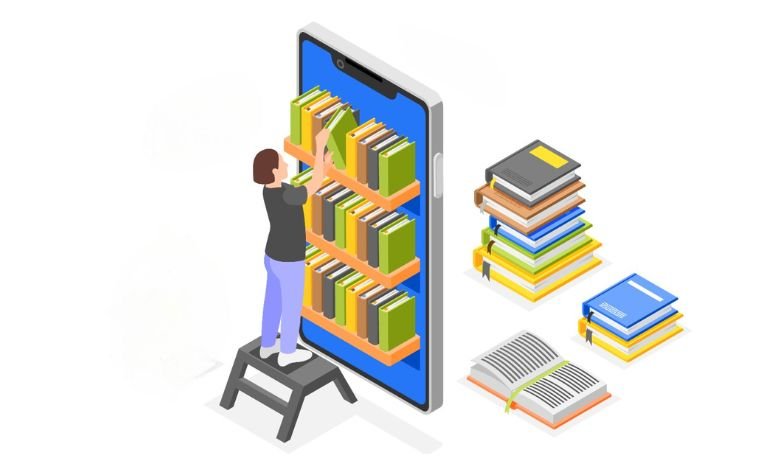
In the digital age, mobile app development is reshaping education globally. The evolution from computers to digital learning platforms has revolutionized how students access educational resources. In this blog, we explore the dynamic relationship between mobile app development and the future of education, highlighting the role of apps, challenges in implementation, innovations, and their impact on student engagement.
Evolution of Education Technology
Historical Perspective:
The evolution of education technology can be traced back to the advent of computers in the classroom. The introduction of personal computers opened new possibilities for interactive learning, laying the groundwork for future innovations.
Rise of Digital Learning:
With the rise of digital learning platforms, the education industry has witnessed a shift towards online resources and collaborative tools. Mobile app development plays a crucial role in making these resources accessible to a wider audience.
Mobile App Development in Education
Role of Mobile Apps:
Mobile apps in education serve multifaceted purposes. They can be tools for communication, repositories of educational content, or platforms for interactive learning experiences. The versatility of mobile apps makes them invaluable in modern educational settings.
Integration with Learning Management Systems:
Many educational institutions integrate mobile apps with Learning Management Systems (LMS) to streamline administrative tasks and enhance the overall learning experience. This integration facilitates seamless communication between educators, students, and parents.
Benefits of Mobile App Integration
Accessibility and Convenience:
One of the primary benefits of mobile app integration in education is enhanced accessibility. Students can access learning materials and resources anytime, anywhere, fostering a more flexible and convenient learning environment.
Personalized Learning Experience:
Educational apps allow for personalized learning experiences tailored to individual student needs. Through adaptive learning algorithms, these apps can adjust content and difficulty levels based on the student’s progress, ensuring a customized educational journey.
Challenges in Implementing Mobile Apps
Security Concerns:
Despite the advantages, the integration of mobile apps in education comes with security challenges. Protecting sensitive student data and ensuring a secure online learning environment are paramount concerns for educators and developers alike.
Technological Barriers:
Not all students have equal access to technology, creating a technological barrier to the widespread implementation of educational apps. Addressing this digital divide is crucial for ensuring inclusivity in education.
Innovations in Educational Apps
Augmented Reality and Virtual Reality:
Innovative educational apps leverage technologies like Augmented Reality (AR) and Virtual Reality (VR) to create immersive learning experiences. These technologies bring abstract concepts to life, making learning more engaging and memorable.
Gamification in Education:
Gamification is another trend in educational app development. By incorporating game elements into learning activities, apps can motivate students, making the educational process more enjoyable and effective.
Impact on Student Engagement
Interactive Learning:
Mobile apps facilitate interactive learning experiences, allowing students to actively engage with educational content. Features such as quizzes, simulations, and collaborative projects contribute to a more participatory learning environment.
Real-time Feedback:
Educational apps provide real-time feedback on student performance, allowing for immediate assessment and intervention. This instant feedback loop helps students track their progress and enables educators to tailor their teaching strategies.
Future Trends in Mobile App Development for Education
Artificial Intelligence in Education Apps:
The integration of Artificial Intelligence (AI) in educational apps opens up new possibilities for personalized and adaptive learning. AI algorithms can analyze student behavior and learning patterns, offering insights for continuous improvement.
Cross-platform Compatibility:
To accommodate the diverse range of devices used by students, future educational apps are likely to prioritize cross-platform compatibility. This ensures a seamless user experience across different operating systems and devices.
Global Perspectives
Mobile App Adoption Worldwide:
The adoption of educational apps varies globally. While some countries have embraced mobile learning wholeheartedly, others are still navigating challenges related to infrastructure and digital literacy.
Varied Approaches in Different Countries:
Different countries take varied approaches to integrating mobile apps into education. Cultural, economic, and technological factors influence the strategies employed, showcasing the need for tailored solutions in diverse educational landscapes.
Strategies for Effective Mobile App Development in Education
Collaboration between Developers and Educators:
A collaborative approach between app developers and educators is crucial for creating effective educational apps. Understanding the pedagogical needs and challenges faced by educators ensures that apps align with educational goals.
User-Centric Design:
Prioritizing user-centric design is essential for the success of educational apps. An intuitive interface, easy navigation, and consideration of diverse user needs contribute to a positive user experience.
Addressing Accessibility Issues
Inclusive Design Principles:
Developers must adhere to inclusive design principles to ensure that educational apps are accessible to all students, regardless of disabilities or limitations. This commitment to inclusivity fosters equal learning opportunities.
Reaching Underserved Communities:
Efforts should be made to bridge the digital divide and bring educational apps to underserved communities. This may involve initiatives to provide affordable devices, internet connectivity, and digital literacy programs.
Measuring Success and Impact
Metrics for Educational App Performance:
Establishing metrics to measure the performance and impact of educational apps is crucial. Metrics may include user engagement, academic improvement, and feedback from educators and students.
Long-term Effects on Learning:
Understanding the long-term effects of mobile app integration on learning outcomes is essential. Research and continuous assessment contribute to refining strategies and ensuring sustained positive impacts on education.
Conclusion
Mobile app development in education enhances accessibility, fosters personalized learning, and introduces innovations like AR and AI. Challenges such as security and technological gaps exist, necessitating collaboration, user-centric design, and efforts to bridge the digital divide. The impact is transformative, shaping a dynamic and engaging learning environment for the future.
Author Image:

Author Bio:
Sanjay Panchal, Director of IIH Global, a leading custom software and mobile app development company in UK, thrives on turning innovative ideas into cutting-edge solutions. His passion for excellence drives him to lead his team in delivering high-quality mobile apps, CRM systems, and web applications for a diverse clientele, ranging from agile startups to established enterprises. Sanjay’s commitment to exceeding expectations has earned IIH Global a reputation for exceeding expectations and building long-lasting partnerships with its clients.



